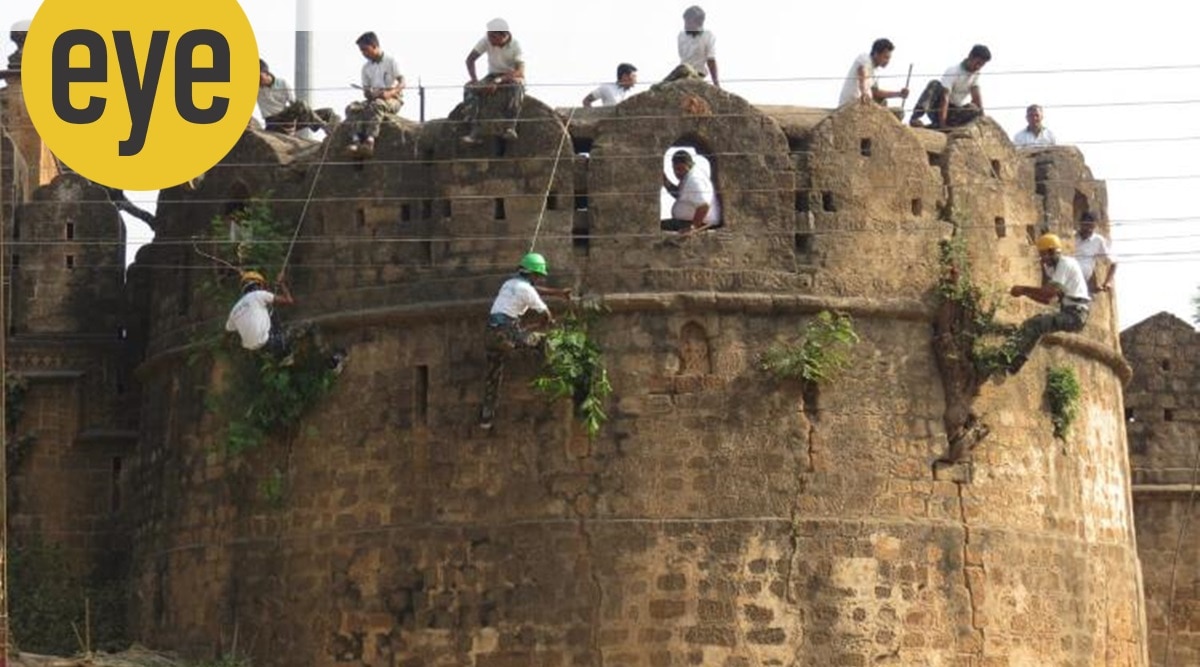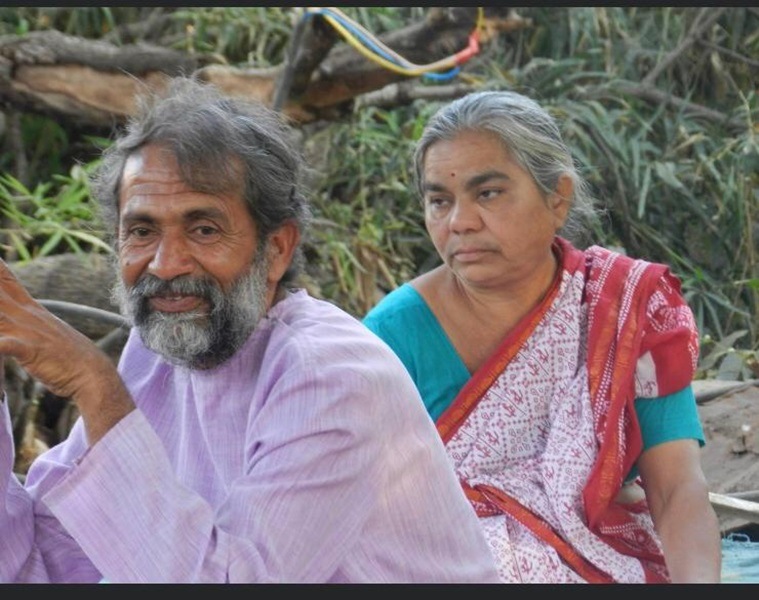 Bandhu Dhotre and his team cleaning the 500-year-old Chandrapur fort which got a mention in the PM's Mann ki Baat (Photo courtesy: Ashutosh Salil and Barkha Mathur)
Bandhu Dhotre and his team cleaning the 500-year-old Chandrapur fort which got a mention in the PM's Mann ki Baat (Photo courtesy: Ashutosh Salil and Barkha Mathur)What is selfless to one is selfish to another. Few can relate to that predicament more than the woman who remains homebound while her husband is out in the world, bringing home the bread and accruing social capital. For instance, it afflicts Yojana, the wife of Bandu Dhotre, 43, a prominent wildlife activist based in Chandrapur, Maharashtra, every day of her life. They were young when he wooed her. Bandu’s idealism and passion for social service inspired her. But now, years into their marriage, she recognises what she signed up for: a lifetime of sacrifice, struggle and patience, the last of which is tested whenever she has to answer to her children why their father is a celebrated figure in school but doesn’t have money to buy them ice cream.
“We wanted to give an honest account of who these activists are — Bandu is not just his work, he’s also where he comes from, also what his failings are,” says Ashutosh Salil, an IAS officer in the Maharashtra cadre, co-author of Being the Change: In the Footsteps of the Mahatma (HarperCollins), a compilation of stories focused on social activists making waves in Vidarbha, the eastern part of Maharashtra. “This kind of conflict will always exist. Even Bapu’s children felt neglected when he was involved in nation-building and the freedom struggle,” adds Salil.
“These activists are selfishly selfless,” agrees Barkha Mathur, co-author of the book and award-winning journalist from Nagpur.
Be it an account of the life of Bandu, whose organisation, Eco-Pro, became famous in 2009 for reviving Chandrapur’s landmark water body, or that of Dr Ravindra Kolhe, who has been treating tribal peoples of Bairagarh in Amravati at nominal fees since 1985, the authors have stayed clear of any romanticism. When they began the project, it was with the need to tell the stories of activists and community leaders, who had done impactful work for decades without recognition, but the writers soon realised that those stories would be incomplete if the spotlight wasn’t turned on the many allies in these missions, the partners and families who supported them.
 Ravindra and Smita Kolhe at Bairagarh, Melghat, Amravati (Photo courtesy: Ashutosh Salil and Barkha Mathur)
Ravindra and Smita Kolhe at Bairagarh, Melghat, Amravati (Photo courtesy: Ashutosh Salil and Barkha Mathur) “Dr Kolhe’s wife, Smita, made great sacrifices. He would ask her to beg for money if a patient did not have even the little money required for treatment,” says Mathur, adding how Smita is an outspoken woman who tempered her husband’s moderate and quieter personality, and is herself a passionate advocate of the rights of tribal women.
“Be it Dr Kavita and Dr Ashish, a couple in Melghat who tended to the region’s tribal population; Samiksha, a Pune-raised woman who moved to Hemalska village after getting married to Aniket Amte and together revolutionised the functioning of the village’s schools and tribal children’s education; or Dr Anagha and Dr Digant, a couple who helped improve Hemalska’s health infrastructure — there was equal interchange of duty between these men and women,” says Mathur. Most of these social workers, the writers say, derive inspiration from Gandhian values.
Dr Ashish’s reading of The Story of My Experiments with Truth (1925) at the age of 13 inspired him to serve India’s villagers because of Gandhi’s observations that the real India lives in villages. Bandu was moved to expand the reach of his work upon reading about another Gandhian Anna Hazare, and his tree-planting initiative in the early 2010s in Ralegaon, Maharashtra, that allowed farmers to sow multiple crops annually. Dr Ravindra was under the tutelage of his uncle, a staunch Gandhian, and went on to imbibe his principles of serving the poor.
“These people are the carriers of that legacy,” says Salil, “They may not carry the national flag all the time but (their dedication to the country) reflects in their work. They live their lives in complete simplicity and yet don’t give in to defeatism. They’re all practical idealists, like Gandhi. Even their methods of mobilisation are without any violence and they work with the administration.”
“Gandhi is a legacy that percolates to us every day,” says Mathur, “Even when so many cases were piled on (some of these activists) and they faced arrest, they didn’t budge from their causes. They believed that if they are right and their methods are non-violent, they will win. And they did.”